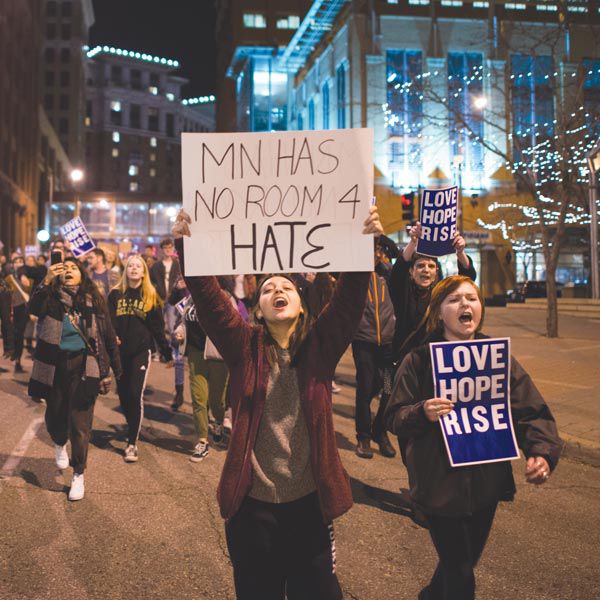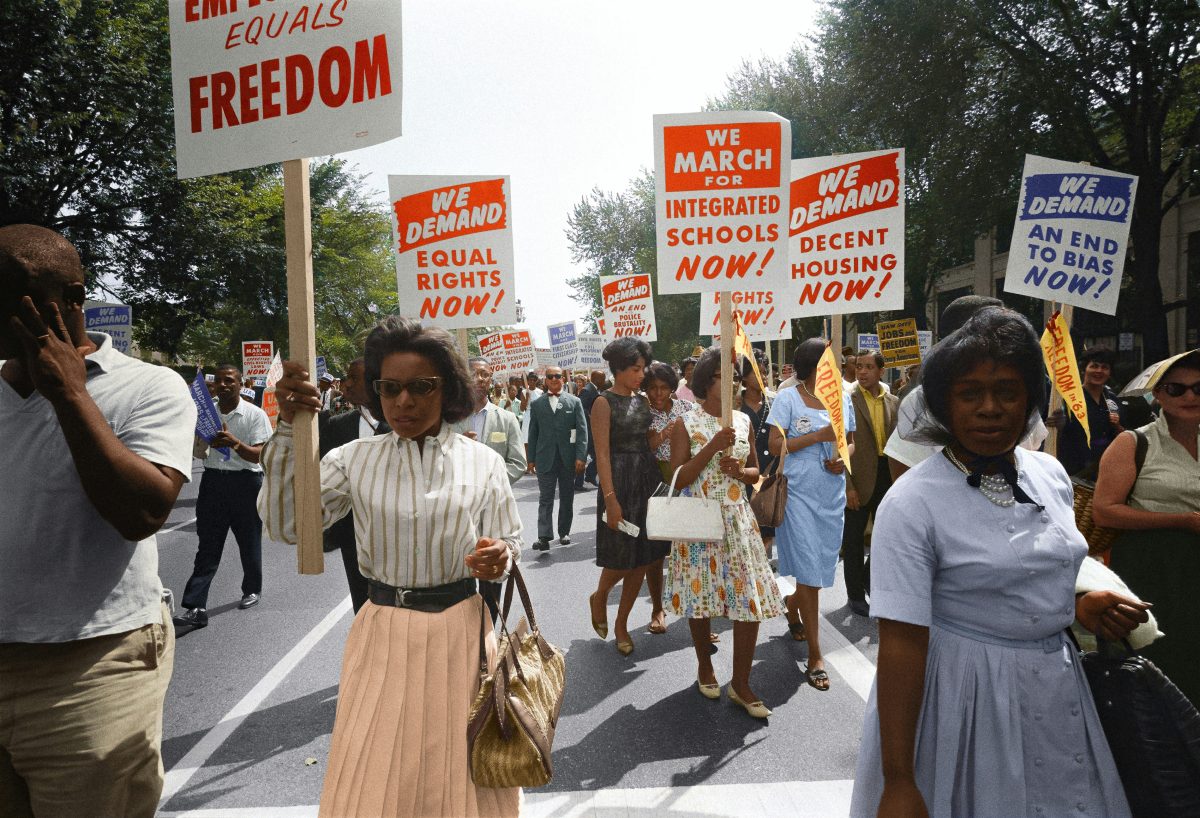Trust me when I say this: I’m just as sick of politics as you are. I’ve been arguing about politics for a good year and a half now, with friends, relatives and people I only know online. I went full all-in mode on political coverage leading up to Nov. 8 last year, and I thought that the morning after would bring us a reprieve from all the heated rhetoric of the 2016 presidential election. I also thought my side, while not fielding maybe the best candidate, would surely trounce the other side’s walking embodiment of “everything that is wrong with America” (and now that I’ve given away the game, there’s a good chance many of you will stop reading. C’est la vie). Needless to say, Nov. 9 didn’t exactly dawn with happiness and relief, so much as agony and exhaustion.
And for almost two months there, right up until the turn of the New Year, I was burnt out. I didn’t want to talk about it, I didn’t want to watch anything about it on TV, and I damn sure didn’t want to argue about it. I was tired. But guess what: silence is not an option.
You see, I’m a white male, and for much of our history (including this past election cycle) I and my peers have held a lot of sway in how this country gets run. That’s just a statement of fact. I don’t endorse it, but I have benefitted from it, even though I suspect my twice-voting-for-Obama gets me kicked out of the “white guys meeting” that are surely held every month. I have the luxury of taking time away from politics if I so choose, because let’s be honest: a lot of what Trump is trying to do will not affect me directly. I have the luxury, the “privilege” if you will, of not having to deal with his executive actions in my everyday life.
But here’s the thing: I know people who do, and who will, have to deal with what he and his cronies are doing. The Muslim ban (and yes, it’s a Muslim ban) affects those friends of mine who are Muslim and who have family in predominantly Muslim countries, including the ones listed in the ban. His policies regarding the LGBTQ community will affect my friends who belong to that community. This is not even getting to what his policy will be regarding the conflict between law enforcement and the African-American community, or his potential assaults on the freedom of the press. So I do have a personal stake, albeit perhaps secondhand, in what he’s doing.
Then again, it’s more important for me to speak up on behalf of those people whom I haven’t yet met, and those whom I may never meet. Those people whom, when they’re referred to by numerical size, suddenly aren’t easy to see as human anymore. Admit it, when you hear “thousands of” or “hundreds of,” it’s hard to see the individual faces of those affected by the policies of this (or of any other) president. That makes it easier for me, a white man with nothing to lose or gain, to sit back and say “it’s not my problem.” But I don’t think that’s an option that I can live with.
Speaking up, and speaking out, is not easy. You can lose friends, alienate potential allies, and find yourself “in the wrong” in the view of the majority. But your silence is consent. If you don’t speak up, simply because there is no direct correlation to you, you might as well be giving Trump a thumbs-up to continue his policies. Maybe it’s never going to be the case that he or his minions eventually come for you or someone that you love. But I don’t think any of us can say with certainty that “it can’t happen to me” at this point in time.
Write your congressmen or women, your senators and your allies. March in the street. Share a hashtag on your social media. Whatever you do, stand up for those who need it, stand up to the bullies that count on your silence as much as anything else. Stand up and be counted.
Categories:
Letter to the editor: Silence is not an option
Trevor Seigler, Clemson Alumni
February 6, 2017

Courtesy of fibonacciblue via Flickr
Thousands of citizens took to the streets to protest President Trump’s actions limiting immigration. Trump’s executive order came into effect January 28.
0
Donate to The Tiger
Your donation will support the student journalists of Clemson University. Your contribution will allow us to purchase equipment and cover our annual website hosting costs.
More to Discover














